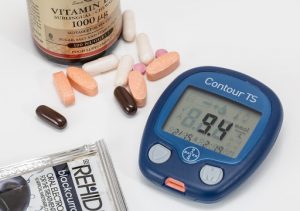Did you know that a person dies from a heart disease every 37 seconds in the US? It’s the leading cause of death in the country, with a poor diet being a major contributor. Is a plant-based diet good for heart disease?

What we eat is at the center of diseases like cardiovascular disease, diabetes, and cancer. For decades, there has been a huge debate about what exactly should Americans eat to stay healthy. Could it be that the solution has been in front of us all this time?
A plant-based diet checks all the boxes that a healthy diet does, especially in the context of heart health. If you’re eating whole foods like vegetables, fruits, nuts, seeds, and legumes, not only can you prevent death from heart disease, you may just be able to reverse the condition.
What is Heart Disease?
Heart disease is an umbrella term for a range of heart-related conditions. Some of these conditions include arrhythmias (heart rhythm problem), coronary artery disease (problem with blood vessels), and congenital heart disease (a birth defect in the heart).
What is cardiovascular disease? The term is used interchangeably with heart disease, and in fact, is a type of heart disease. It’s the blocking or narrowing of blood vessels, leading to angina (chest pain), heart attack, or even stroke.
Heart Disease Risk Factors and Causes
Are heart diseases genetic or lifestyle caused? They are both, but the latter is credited with the majority of cases. Your lifestyle choices can have a direct impact on your chances of getting a heart disease.
There are several risk factors and causes behind heart conditions. What makes things even worse is that having only one risk factor can significantly increase the chances. Here are the common risk factors:
High Blood Pressure
Hypertension or high blood pressure is single-handedly the gravest risk factor when it comes to heart disease. People with high blood pressure are perhaps the most likely to get heart disease.
An Oxford study on hypertension and heart disease involving women found that high blood pressure increased the risk of coronary heart disease and stroke. Interestingly, it showed the risk was the same in both lean and obese women.
High Cholesterol
According to the Center for Disease Control and Prevention (CDC), you’re twice as likely to get a heart disease if you have high levels of cholesterol than if you have normal cholesterol levels. This is a byproduct of unhealthy eating if you will, as most people with bad cholesterol have it because of their lifestyle.
Diabetes
Diabetes increases your chances of dying from heart disease by two to four times. Moreover, 68% of people aged 65 or older with diabetes die from heart disease. Heart disease is one of the most common diabetes complications.

Continuous high blood sugar levels can damage arteries and the heart. Diabetes is a condition/disease in itself which can be prevented. It’s mostly a result of bad diet or genetics, which also causes heart disease.
Obesity
Obesity has a direct link with high blood pressure and diabetes. You can put two and two together to gauge just how deadly obesity can be. Obesity is also a common risk factor for heart disease in the US.
The Framingham Heart Study, which is in its fourth generation, showed that an increase of just 1 kg/m2 in BMI results in an increase in the risk of heart disease by 5%.
Bad Diet
A bad diet is behind a number of other risk factors, so in a way, it’s only second to hypertension. A bad diet for your heart is the one with lots of fats, cholesterol, sodium, and sugars. In contrast, a plant-based diet is low in all these questionable nutrients.
This is one of the reasons why heart disease has become the number one killer in the US. With the ever-increasing consumption of fast food, sugary drinks, and unhealthy snacks, the lifestyle has changed dramatically for the worst.
Family History
Your family history with heart disease may also increase your risk of getting a heart disease yourself. How can you tell if you’re at high risk of heart disease because of family history?
- If an immediate male relative suffered a heart attack at the age of 55 years or above
- If an immediate female relative suffered a heart attack at the age of 65 years or above
Stress
Believe it or not, stress is bad for your health, especially your heart health. According to the National Heart Lung and Blood Insitute, your chances of heart disease are 64% higher if you have a depressive disorder.
Smoking
We have known for a long time that smokers die young. Often it’s because of heart disease, as according to CDC data, one out of every four deaths from cardiovascular disease is because of smoking.
How is Heart Disease Diagnosed?
There’s a combination of blood tests and other non-invasive tests that doctors use to diagnose heart disease. Some of the blood tests for the heart include Complete Blood Count (CBC), C-reactive Protein (CRP), and Fasting Glucose.
Electrocardiogram (EKG or ECG) and echocardiogram (echo) are important tests for diagnosing heart disease. You may also need an ultrasound or invasive cardio tests for a more accurate diagnosis.
A cardio specialist is the best person to diagnose if you have heart disease. Your doctor will decide which tests to perform based on the information you provide.
Can Heart Disease Be Prevented?
With heart disease being so common and deadly in the country, it’s important for virtually everyone to take preventive measures from the start. If you look closely, most of the risk factors of heart disease are preventable.
A common denominator between several of these causes is a bad diet. From diabetes to obesity to high blood pressures, all risk factors have something in common. Those who eat foods with high fat, cholesterol, and sugar are more likely to get a heart disease through one or more of the risk factors.

There’s mounting evidence that a plant-based diet can prevent many life-threatening diseases including heart disease. Many studies spread over several decades have proven the effects already. However, one recent study is a lot more comprehensive and conclusive.
A 12-year research study at Harvard looked at the effects of several variations of plant-based diets on men and women. This large-scale study involved 47,983 women and 25,737 men. None of the participants had any history of heart disease or cancer.
They were divided into three groups by diet: healthy plant-based diet, overall plant-based diet, and unhealthiest plant-based diet (with a lot of processed foods). The study showed that those who followed the healthiest plant-based diet had a 10% lower risk of dying from heart disease.
On the other hand, the unhealthiest plant-based diet resulted in an 11% increase in the risk. This is quite interesting as it goes to show that just a plant-based diet would not be enough to prevent heart disease.
Is a plant-based diet good for heart disease prevention? Yes, but it has to be a healthy plant-based diet containing whole foods with limited or no processed foods at all.
Is a Plant-based Diet Good for Heart Disease?
So we have ample evidence that a plant-based diet is great for preventing heart disease, but is it also good for those who already have it? The general consensus amongst scientists, nutritionists, and fitness experts is that a plant-based diet is the best diet for a patient with any heart disease.

The very nature of a whole food plant-based diet is therapeutic for heart disease. No matter what the underlying cause is and the level of disease, a diet full of vegetables and fruits, free from animal products, is essentially your best chance.
Low Fat
A plant-based diet is an inherently low-fat diet. Diets rich in fats (those with meat and other animal products) are simply bad for your heart. So if you have a heart condition, the first thing you need to do is get off all the fat.
Lowers Cholesterol
Cholesterol is responsible for coronary heart disease, as it chokes your blood vessels through the build up on the walls. You need to reduce cholesterol levels in your body to reduce this effect.
A research review of 49 studies revealed that a plant-based diet was better equipped at controlling cholesterol than an omnivorous diet. This extensive study showed that this diet reduced total cholesterol, LDL, and HDL, by as much as 30%.
Reduces Hypertension
Many of the plant-based foods are extremely rich in potassium. This important mineral is responsible for improving blood flow in the body, eventually reducing hypertension. As a result, these potassium-rich vegetables and fruits are great for people with heart disease and hypertension.
A paper published in the Journal of Geriatric Cardiology analyzed many studies to observe the effects of a plant-based diet and found it to keep blood pressure low. Including leafy greens and fruits such as apples, bananas, and pears in your daily diet can help regulate blood pressure.
Can Heart Disease Be Reversed?
A lot of people who are diagnosed with heart disease take tons of expensive medications. According to the CDC, heart disease costs the US $219 billion. So can heart disease be cured with just medication?

While medications are important for treating heart disease, it’s imperative for heart patients to make necessary changes in their lifestyle. In other words, switching to a whole-foods plant-based diet is their best shot at reversing the disease.
Dr. Dean Ornish’s Undo It Program
In this regard, the most promising work we have seen is by Dean Ornish. The ‘undo it’ program by Ornish Lifestyle Medicine has proven successful for a lot of people. The program has four parts, one of which is switching to a plant-based diet.
Dean Ornish has proved with evidence that even severe heart disease can be reversed with a plant-based diet. Some of the patients from the early days of the program are still living a healthy life.
There are many examples of people recovering after living for years with heart disease, some of them even going through surgeries. Dr. Rajiv Misquitta’s inspiring story shows what a significant difference some lifestyle changes can make.
It’s important to point out that you need to take a holistic approach to reverse your heart condition. As Dean Ornish’s program shows, the change goes into every aspect of your life. You have to combine a healthy diet with physical activity and managing stress.
More importantly, your plant-based diet shouldn’t merely be plant-based, but essentially whole-food based. You want to stay away from unhealthy plant-based foods as well, in addition to meat and animal products. Focus on the nutritional quality of the food you’re eating.
For instance, white rice and white flour are essentially plant-based foods. However, they are highly processed, so as a heart patient, you want to avoid those.
Can Heart Disease Kill You?
You know a disease is deadly if it’s the number one cause of death in the country. To make matters worse, it’s also the number one killer in the world. Globally, 17.9 million people die from cardiovascular disease every year, according to the World Health Organization (WHO).
A lot of the time, heart attacks are silent, and you don’t even know you’re having one. However, it does the damage it has to do, leaving you even more susceptible to death. When you mix in other diseases such as diabetes, it gets even worse.
In a nutshell, heart disease is deadly and should be taken seriously by everyone. Those who have it already need to work on stopping its progress and reversing it. Those who don’t have it yet need to take preventive measures.
Wrap Up
So is a plant-based diet good for heart disease? Yes, it’s a proven method for heart disease prevention and treatment. There’s enough scientific evidence to support this hypothesis and real-life examples amongst us.
If you already have heart disease, you need to pay extra attention to what you eat. Even within the plant-based family, certain diets and specific foods can be extremely beneficial. Do your diligent research and commit to the changes you’re making.
You may also like: IS A PLANT-BASED DIET GOOD FOR DIABETES? >>CLICK HERE!










